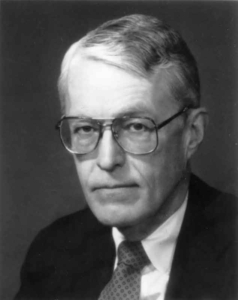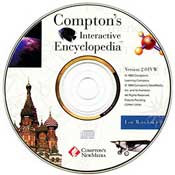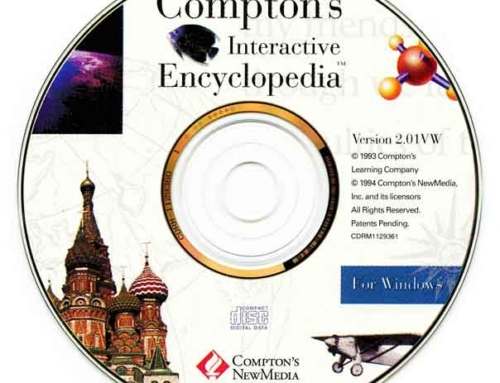Subchapters
- A Milestone in Evolution of the Human/Machine Interface
- The Proper Study of Mankind
- The Encyclopædia Britannica First Edition
- The Encyclopedist’s Art
- William Benton, EB Owner and Publisher
- Robert Hutchins, University of Chicago President
- Mortimer Adler, Philosopher
- Charles Van Doren, EB Editorial Vice President
- Reinventing the Encyclopedia in Electronic Form
- Solving the PC Data Storage Problem
- Patricia Wier, EB, Marvin Minsky, MIT, and Alan Kay
- Peter Norton Takes Britannica into the Software Business
- Harold Kester, SmarTrieve, and Compton’s Encyclopedia
- Dr. Stanley Frank, Vice President, Development
- Compton’s Patent R.I.P.—An Afterthought
- A Look Back from Encyclopaedia Britannica
The Encyclopedist’s Art

Philip W. ("Tom") Goetz,, Editor, Encyclopaedia Britannica
In the twentieth century, encyclopedists were not the only people to worry about how to facilitate access to an ever-growing sum of knowledge. The problem arising from the information explosion of modern times was also noticed by those who helped create it. In particular, the scientists and mathematicians who had created whole new disciplines of knowledge, such as atomic physics and computing machines, had also begun to think about how to increase efficient access by their colleagues and lay people to growing domains of information.
Since the mission of an encyclopedia is to encompass in an abbreviated and accessible form all of our knowledge about everything, the editorial investments needed to create encyclopedias have always been substantial. As a result, the number of encyclopedias has always been relatively few. Also, while there are more than 4,000 distinguished outside contributors commissioned to write articles for an encyclopedia such as the Britannica, there is a much smaller number of career encyclopedists charged with the actual design and creation of the work and its ongoing revision.
In the modern era, professional encyclopedists around the world working continuously in the English language have mostly numbered in the hundreds rather than the thousands. And for over two centuries, the encyclopedists at Britannica have remained the most skilled and respected of their breed. The task of an encyclopedist is an odd one. There are not many of these folks around, and the few around tend to spend their days in single-minded thought on how best to organize a brief, narrative summary of our cumulative understandings of history, art, literature, science, religion, philosophy, and culture.
The encyclopedist’s art has traditionally been more of what to leave out, rather than what to put in.
During my 28-year tenure at Britannica, I had the privilege of working frequently with EB’s Editor for much of that time, Phillip W. (“Tom”) Goetz, and later his successor, Robert (“Bob”) McHenry.
Goetz had been promoted to Editor well before the day I arrived in 1986. He had been the second-in-command Executive Editor during the long development of the 15th Edition. When I once asked him about what that period was like, he said it was the toughest job he ever had to slog through.
The complete rewriting of the 14th Edition had begun in the 1950s and the 15th Edition wasn’t published until 1974.
During that time, Goetz said that, to insure the entire corpus had editorial consistency and “spoke with one voice,” he was detailed to be the one and only person to read and give final approval to all of the 44 million words in the 65,000 articles. The set as a whole was comprised of 32 volumes, each having more than 1,000 pages.
Goetz was possessed of an exceptional intellect and engaging manner, and he never forgot a lot of what he had read, either.
Once, when we had a problem with the development of an Italian translation of Encyclopædia Britannica, I travelled with him to Milan. Arriving on a weekend, we decided to check the common tourist box of visiting the Milan Cathedral.
I was particularly anxious to see it as my mother had taken a snapshot of the church on her honeymoon in 1928. Begun in 1386, it had been added to and refined over the next six centuries.
To take in the exceptional view of Milan from the top of the Cathedral, we climbed the 250 steps to the Duomo roof. As we strolled amongst the marble forest of statues and gargoyles, Tom had been filling me in on aspects of the Cathedral’s construction.
When I asked him what had been going on in the Catholic Church at the time of construction and the years immediately following, my casual question did not elicit a casual answer.
It was all in his head, and he poured it out to me in excruciating detail for the next hour, formulated in perfect paragraph-like sections.
It was an amazing and thorough education for me. While it had been completely casual for him to speak off the cuff as he did, he spoke with the command of a specialist university professor who might have spent an entire career studying and lecturing on the Middle Ages.











